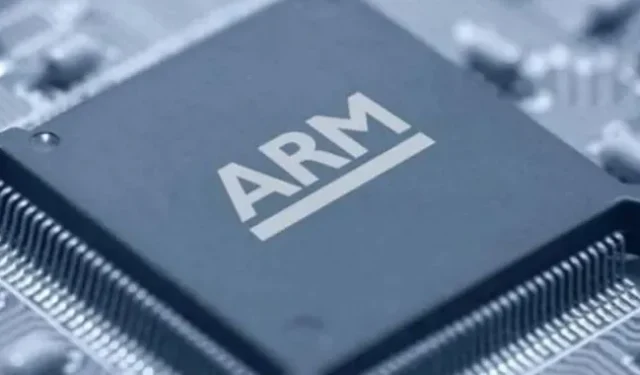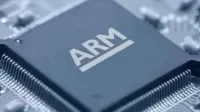US chipmaker Qualcomm wants to buy a stake in Arm along with its competitors and form a consortium that will keep the British chipmaker neutral in the highly competitive semiconductor market.
Japanese conglomerate SoftBank plans to list Arm on the New York Stock Exchange after Nvidia’s $66 billion purchase collapsed earlier this year. However, the IPO raised concerns about the company’s future ownership, given its critical role in the global technology sector.
“We are interested in investing,” Qualcomm CEO Christiano Amon told the Financial Times. “This is a very important asset and will be essential to the development of our industry.”
He added that Qualcomm, one of Arm’s biggest customers, could join forces with other chip makers to buy Arm outright if the consortium making the purchase is “large enough.”Such a move could alleviate concerns about corporate control of Arm after the upcoming IPO.
“You need to have many companies involved so that they have the overall effect of Arm independence,” he said.
Arm, founded and headquartered in the UK, was listed in London and New York before being acquired by SoftBank for £24.6bn in 2016, despite widespread concerns that the most successful British technology company will fall into the hands of foreigners.
Some British politicians have urged the government to buy a “golden share”in Arm, which recognizes the company’s place as the country’s most important strategic asset.
But despite intense British lobbying, SoftBank is believed to be pushing the US listing, raising questions about future control of the company, long seen as an unbiased player in the $500 billion global semiconductor industry. Arm enters into licensing agreements with partners regardless of size or geographic location, which has resulted in its intellectual property being used in the majority of chips sold worldwide.
Amon’s intervention will give new impetus to the idea that a syndicate of chipmakers will be the cornerstone of investors in Arm. Intel chief executive Pat Gelsinger suggested that the US chipmaker could support such a move earlier this year.
Qualcomm has opposed Nvidia’s proposed acquisition of Arm, saying it doesn’t make sense for a single chipmaker to take control of a company that is of fundamental value to the entire sector.
“Arm won everywhere thanks to the collective investment of the entire ecosystem, companies like Apple, Qualcomm and many others, and this is because it was an independent, open architecture that anyone could invest in,” Amon said, referring to the pre-SoftBank period. bought the company.
As semiconductor demand doubles over the next 10 years, and the world struggles to recover from years of chip shortages, manufacturers of technology used in all modern electronics will rely on Arm designs more than ever.
“Looking at today, I think the trend is that everything is moving to Arm,” Amon said, pointing to the recent expansion of IP chip developers beyond mobile phones into cars, the Internet of Things and data centers.
After several years of low returns, Arm reported a record annual revenue of $2.7 billion in 2021, up 35% from the previous year. Revenues from the licensing business grew by almost two-thirds, while royalties increased by a fifth to $1.5 billion.
Amon said Qualcomm has not spoken to SoftBank about a potential investment in Arm. He added that the Japanese group was prioritizing breaking the deadlock at ARM’s China division.
Allen Wu, chief executive of Arm China, effectively controlled the division but fell out with its British parent company as well as SoftBank.
However, recent official Chinese reports have revealed that Wu has been removed from all of his positions at Arm China, setting the stage for Arm’s IPO.
Investing in Arm alongside competitors will “support a successful IPO and valuation”and ensure the company continues to “strive and invest,”Amon said.


